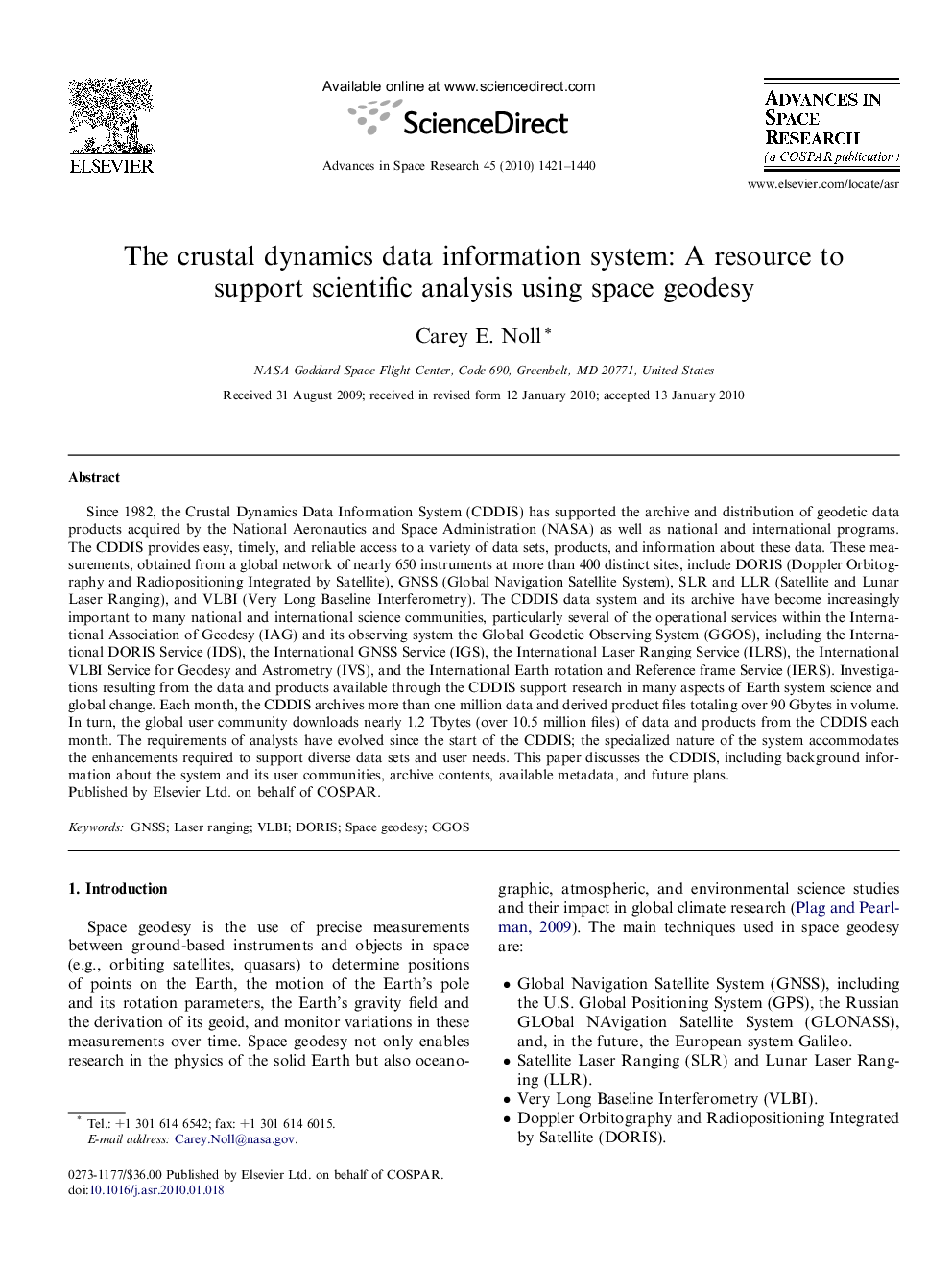| Article ID | Journal | Published Year | Pages | File Type |
|---|---|---|---|---|
| 1766251 | Advances in Space Research | 2010 | 20 Pages |
Since 1982, the Crustal Dynamics Data Information System (CDDIS) has supported the archive and distribution of geodetic data products acquired by the National Aeronautics and Space Administration (NASA) as well as national and international programs. The CDDIS provides easy, timely, and reliable access to a variety of data sets, products, and information about these data. These measurements, obtained from a global network of nearly 650 instruments at more than 400 distinct sites, include DORIS (Doppler Orbitography and Radiopositioning Integrated by Satellite), GNSS (Global Navigation Satellite System), SLR and LLR (Satellite and Lunar Laser Ranging), and VLBI (Very Long Baseline Interferometry). The CDDIS data system and its archive have become increasingly important to many national and international science communities, particularly several of the operational services within the International Association of Geodesy (IAG) and its observing system the Global Geodetic Observing System (GGOS), including the International DORIS Service (IDS), the International GNSS Service (IGS), the International Laser Ranging Service (ILRS), the International VLBI Service for Geodesy and Astrometry (IVS), and the International Earth rotation and Reference frame Service (IERS). Investigations resulting from the data and products available through the CDDIS support research in many aspects of Earth system science and global change. Each month, the CDDIS archives more than one million data and derived product files totaling over 90 Gbytes in volume. In turn, the global user community downloads nearly 1.2 Tbytes (over 10.5 million files) of data and products from the CDDIS each month. The requirements of analysts have evolved since the start of the CDDIS; the specialized nature of the system accommodates the enhancements required to support diverse data sets and user needs. This paper discusses the CDDIS, including background information about the system and its user communities, archive contents, available metadata, and future plans.
